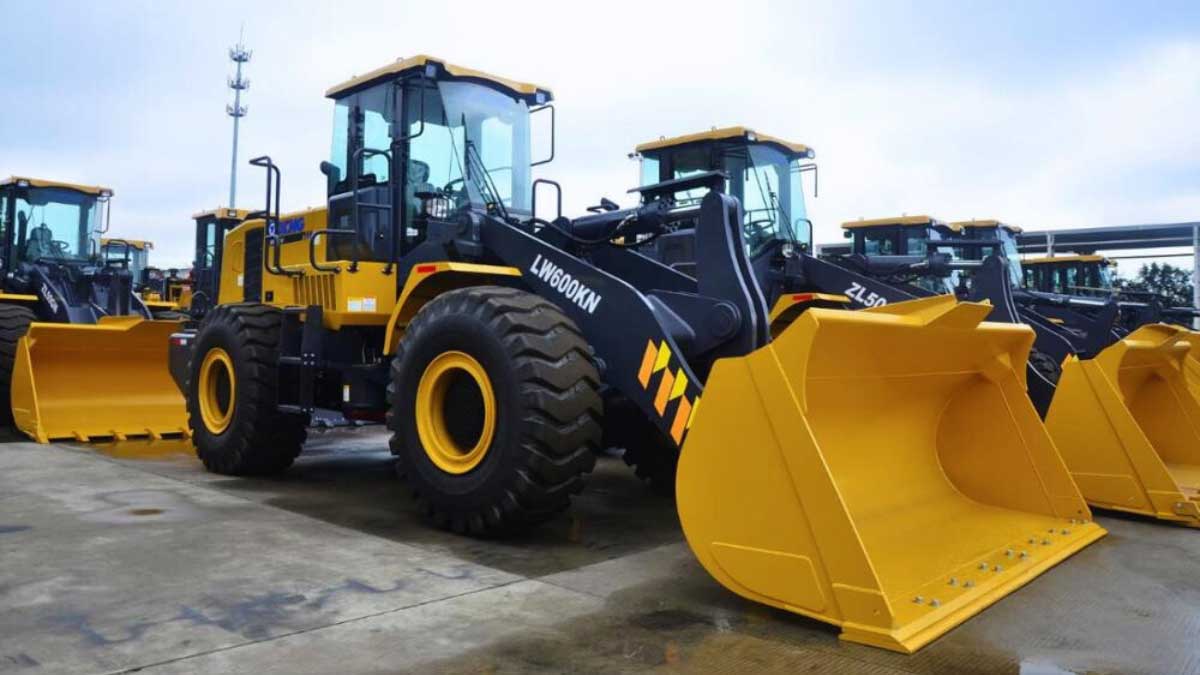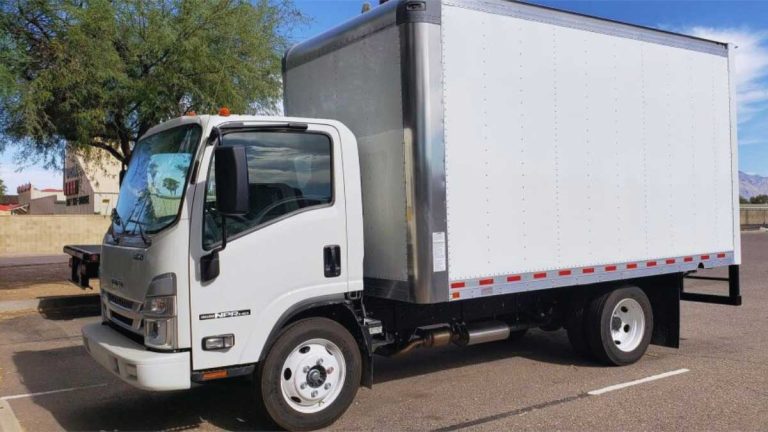How Heavy is 7 Tons: Understanding Weight in Everyday Items
When you hear the term “7 tons,” it might not sound like much at first. However, once you realize that a single ton equals 2,000 pounds or 907 kilograms, the sheer magnitude of 14,000 pounds or 6,350 kilograms becomes clear. This weight is equivalent to the combined heft of several cars or a small herd of elephants, making it a true heavyweight in the world of measurements.
Understanding the weight of 7 tons can give you a new perspective on the massive items that surround us, some we use daily and others we only hear about. From industrial machinery to large sculptures, these objects are part of our world, yet their weight is often underestimated. Discovering what weighs around 7 tons can be both fascinating and eye-opening, providing insight into the incredible scale of everyday and extraordinary items alike.
Key Takeaways
- Understanding the Magnitude of 7 Tons: Seven tons equate to 14,000 pounds or approximately 6,350 kilograms, making it a significant weight comparable to several cars combined or a smaller aircraft.
- Unit Conversions: In different measurement systems, 7 tons equal 14,000 pounds, 6,350 kilograms, or 224,000 ounces, showcasing the weight’s significance in both Imperial and metric units.
- Comparisons with Everyday Objects: Objects weighing around 7 tons include a Rolls-Royce RB211 engine, a 48-foot semi-trailer, and a 2500 kVA transformer, demonstrating the substantial load they represent in engineering and transportation.
- Vehicle and Nautical Equipment Contexts: A standard car weighs around 3,000-4,000 pounds, while a city bus ranges from 11 to 20 tons. In marine terms, 7 tons is heavier than small boats but lighter than many yachts, highlighting its position between various sized vessels.
- Exploring Practical Implications: Recognizing the weight of 7 tons helps contextualize the substantial scale of everyday objects and industrial machinery, enhancing appreciation for their engineering and functional magnitude.
Understanding Tons and Weight
In everyday life, you encounter various measurements, but have you considered what a ton really represents? Discover the details of this unit of weight and how to comprehend something as hefty as 7 tons.

What Is a Ton?
A ton, often referred to as a short ton in the United States, is a standard unit of measurement equaling 2,000 pounds or roughly 907 kilograms. It’s distinct from the long ton, used primarily in the United Kingdom, which amounts to about 2,240 pounds, and the metric ton, common in most other countries, measuring approximately 1,000 kilograms. When you talk about weight in tons, you’re using a traditional unit that conveniently simplifies large quantities of pounds or kilograms.
How Heavy Is 7 Tons?
When considering the magnitude of 7 tons, convert this weight into more familiar units. At 14,000 pounds, compare it to items like several mid-sized cars combined or a smaller aircraft like a Cessna plane. This weight equates to approximately 6,349 kilograms, further illustrating its enormity. Visualize industrial machinery or large sculptures, and you’ll begin to grasp the massive scale involved with 7 tons. Understanding the weight of 7 tons gives you a new perspective on the large objects that populate various environments—from construction sites to art installations.
Unit Conversions for 7 Tons
Understanding how 7 tons translates to different units reveals its substantial weight and varied applications. This section provides accurate conversions to common units:
Converting 7 Tons to Pounds
Did you know that in the United States, 1 ton equals 2,000 pounds ? This means that you can find out how many pounds are in a certain number of tons by simply multiplying the number of tons by 2,000 .
For example, let’s say you have 7 tons and you want to figure out how many pounds that is. You can use this simple formula:
pounds = tons × 2,000
Now let’s plug in the numbers:
7 tons × 2,000 pounds/ton = 14,000 pounds
So, 7 tons equals 14,000 pounds !
Explanation:
Think of a ton like a huge amount! When we say 1 ton in the U.S., we really mean 2,000 pounds. So when you have 7 tons, you just multiply that number by 2,000 . This is like multiplying the amount of a really big object a few times!
To give an idea of how heavy that is, 14,000 pounds is about the weight some big trucks carry or even the weight of a small airplane fully loaded!
Converting 7 Tons to Kilograms
Do you know that a US ton can be converted into other units like kilograms, ounces, or metric tons ? Let’s break it down one step at a time!
1. Converting 7 Tons to Kilograms
In the metric system (used in many countries outside the US), 1 US ton equals 907.18474 kilograms . So, to find out how many kilograms are in 7 tons , just multiply like this:
kilograms = tons × 907.18474
Now, let’s do the math:
7 tons × 907.18474 kilograms/ton ≈ 6,350.29 kilograms
So, 7 US tons equals about 6,350 kilograms . That’s really heavy!
2. Converting 7 Tons to Ounces
In the US system, 1 pound equals 16 ounces , and 1 ton equals 2,000 pounds . So, to figure out how many ounces are in 7 tons , first multiply tons by pounds , and then multiply pounds by ounces . Here’s the formula:
ounces = tons × 2,000 × 16
Let’s do the math:
7 tons × 2,000 pounds/ton × 16 ounces/pound = 224,000 ounces
So, 7 tons equals 224,000 ounces . That’s a lot of ounces!
3. Converting 7 Tons to Metric Tons
A metric ton is used in most of the world and is a bit smaller than a US ton. 1 US ton is about equal to 0.907 metric tons . So, to find out how many metric tons are in 7 US tons , we can multiply:
metric tons = tons × 0.907
Now let’s do the calculation:
7 tons × 0.907 ≈ 6.349 metric tons
So, 7 US tons is about the same as 6.349 metric tons .
Everyday Objects Weighing 7 Tons
Grasping the weight of 7 tons involves envisioning large objects in daily life. Recognizing these items offers insight into the substantial size of such loads.
Example 1: Rolls-Royce RB211 Engine
The Rolls-Royce RB211 engine epitomizes heavyweight engineering. Weighing around 7 tons, this high-bypass turbofan engine powers various aircraft. Known for revolutionizing aero-engine technology, it highlights the magnitude of engineering feats required to design systems capable of flight at these weights.
Example 2: 48ft Semi-Trailer
A 48-foot semi-trailer, commonly encountered on highways, weighs about 7 tons when empty. Designed to transport goods across vast distances, these trailers play a crucial role in logistics. Their significant weight underscores the robust construction necessary to ensure safe and efficient transport of large quantities of goods.
- 2500 kVA Transformer: This piece of electrical equipment weighs approximately 7 tons. It’s instrumental in transferring electric energy across circuits, signifying the power management capabilities required at such a scale.
These examples show the diverse applications and engineering achievements associated with objects weighing around 7 tons. Recognizing their significance in everyday life helps appreciate the complexity and scale of the technology we rely on.
Contextualizing the Weight of 7 Tons
The weight of 7 tons represents a significant mass in various contexts. It’s equivalent to 14,000 pounds, providing a tangible benchmark for comparison with everyday objects and industrial equipment.
Comparing to Common Vehicles
To understand the weight of 7 tons in the context of vehicles, consider these examples:
- Buses: A typical city bus weighs between 22,000 and 40,000 pounds (11 to 20 tons). At 7 tons, or 14,000 pounds, you find that it’s substantially lighter than most city buses.
- Cars: A standard car weighs about 3,000 to 4,000 pounds. In this context, 7 tons equates to the weight of 3.5 to 4.7 average-sized cars.
Table: Vehicle Weight Comparison
| Vehicle | Weight (Pounds) | Equivalent in Tons |
|---|---|---|
| City Bus | 22,000 – 40,000 | 11 – 20 |
| Standard Car | 3,000 – 4,000 | 1.5 – 2 |
| Weight of 7 Tons | 14,000 | 7 |
Comparing to Nautical Equipment
In the realm of nautical equipment, understanding the weight of 7 tons provides insight into the scale of marine vessels:
- Boats and Ships: A small sailboat typically weighs between 1 and 5 tons. This means that 7 tons is heavier than smaller boats but lighter than many yachts.
- Yachts: Larger yachts weigh between 10 and 20 tons, making the weight of 7 tons more comparable to smaller or mid-sized boats.
When visualizing weights in automotive or nautical contexts, remember that 7 tons bridges the gap between everyday vehicles and certain classes of maritime vessels.
Conclusion
Grasping the weight of 7 tons opens a window into the vastness of the objects around us. It challenges you to envision the heft of industrial machinery or the intricacy of large-scale art. By translating this weight into relatable terms, you gain a deeper appreciation for the engineering marvels and everyday items that embody such mass. Whether you’re considering the weight compared to vehicles or nautical equipment, understanding 7 tons enhances your perception of the world. This knowledge not only enriches your understanding of weight but also inspires a newfound respect for the structures and technologies that shape our environment.







